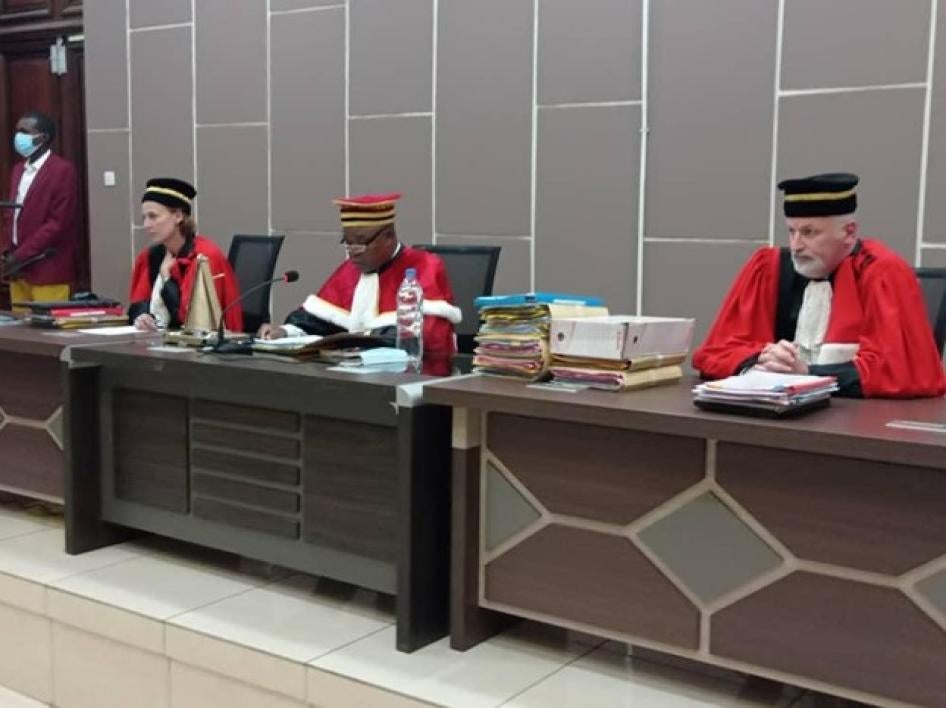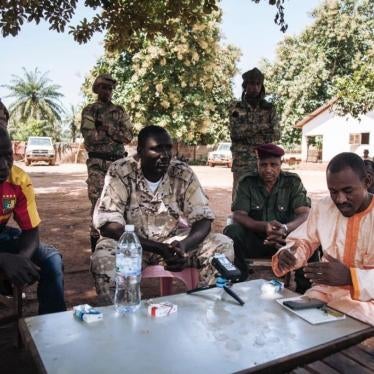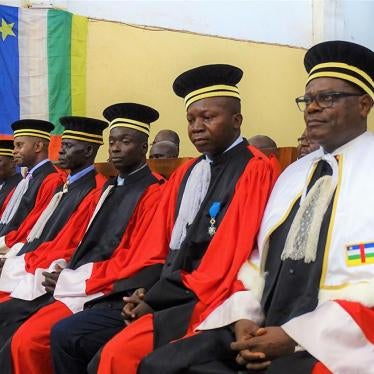On December 17, the Central African Republic’s Special Criminal Court (SCC) announced it will send its first case to trial. This is a significant moment in the difficult effort to see justice for heinous abuses committed in the most recent conflicts in the Central African Republic.
The case involves alleged war crimes and crimes against humanity committed in May 2019 in Koundjili and Lemouna by suspects Issa Sallet Adoum, Ousman Yaouba, and Tahir Mahamat.
I arrived in Koundjili, a small village in northwest Central African Republic, about two weeks after the killings. People were still in shock, despite years of violence and fighting in the region. They told me how on May 21, 2019, several dozen fighters from the armed group Return, Reclamation, Rehabilitation, or 3R, entered the village, summoned 11 men, and executed them. They killed two others while leaving. The same day, the group’s fighters also killed 22 men in neighboring Lemouna village and at least 10 civilians in the town of Bohong. The brutal killings came just months after 3R leaders signed a peace accord designed to end such acts.
The sister of one victim told me she feared people will turn to vengeance if there is no action taken against 3R. “If justice is really to be done, it must be a real justice for there to be peace,” she said.
In the days following the killings, the head of 3R, Sidiki Abass, handed over the three men now facing trial at the SCC to authorities and the United Nations. While this trial is crucial in establishing culpability, the Central African government should not accept that handing over these men absolves higher level 3R commanders of responsibility for these killings.
This is a significant moment in the Central African Republic. There remains much to be done, including the re-arrest and trial of the SCC suspect Hassan Bouba after his surprise release last month. But if this trial serves as a step toward justice for serious crimes, it could help bring the country closer to durable peace.










